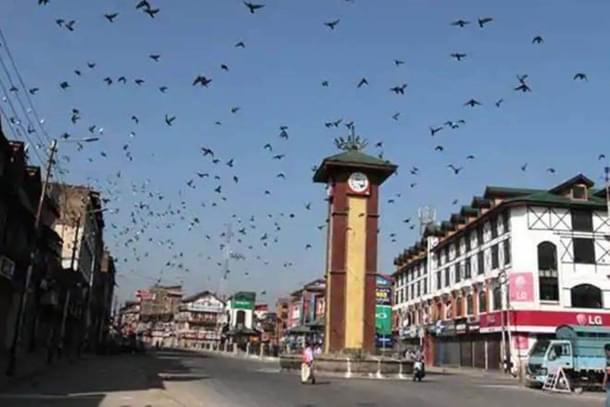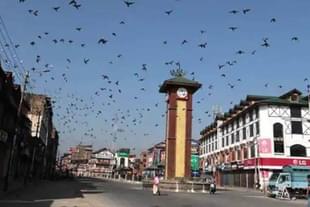News Brief
Jammu And Kashmir Government Faces Backlash Over New Reservation Rules—All You Need To Know From Reasons To Reactions
Vansh Gupta
Dec 23, 2024, 08:28 PM | Updated 08:28 PM IST
Save & read from anywhere!
Bookmark stories for easy access on any device or the Swarajya app.


In a dramatic turn of events, political leaders and students gathered outside Jammu and Kashmir Chief Minister Omar Abdullah's residence to demand a review of the reservation policy introduced by the Lieutenant Governor-led administration earlier this year. The protest has drawn widespread attention, highlighting growing dissatisfaction with the policy among various sections of the population.
The Protest and Key Players
The protest, led by students and supported by several political leaders, unfolded at Gupkar Road, outside the Chief Minister's residential office. Among the notable participants was MP Ruhullah Mehdi, a member of Abdullah's National Conference party, who had earlier called for the protest on X. Opposition leaders such as PDP's Waheed Para and Iltija Mufti, as well as Awami Ittihad Party leader Sheikh Khurshi, joined the demonstrations, lending further weight to the agitation.
Interestingly, Abdullah’s own son stepped outside to express solidarity with the students. Iltija Mufti emphasized, "We are not here to do politics," instead pointing out the neglect of the youth in the valley amid discussions on Article 370 and statehood restoration.
Chief Minister's Response
Hours into the protest, Omar Abdullah invited the students for a dialogue at his office. Acknowledging the public sentiment, he stated, "Peaceful protest is a democratic right, and I would be the last person to deny anyone that right." He assured the protesters that their concerns were neither ignored nor dismissed and promised a fair decision after due procedure.
Overview of the Reservation Policy
The controversial policy, introduced by LG Manoj Sinha's administration, altered the reservation structure by reducing the general category's share and increasing allocations for reserved categories. Key changes included:
1. Scheduled Tribes (ST): Reservation increased to 20 per cent, including 10 per cent for Paharis and three other tribes.
2. Other Backward Classes (OBC): Reservation raised to 8 per cent, with 15 new castes added to the OBC list, as recommended by the SEBC Commission.
The policy was legislated through amendments in the Jammu & Kashmir Reservation Rules, 2005, supported by acts passed in Parliament earlier this year.
Widespread Opposition
The reservation policy has faced criticism from both politicians and students, who view it as unjust. The protests intensified with calls for a comprehensive review. On 10 December, the Jammu and Kashmir government constituted a three-member panel to reassess the policy. Concurrently, the high court sought a government response to a petition challenging the policy, setting a three-week deadline.
Future Outlook
Chief Minister Abdullah reiterated his party’s commitment to addressing public concerns, stating that the issue would not be swept under the carpet. As protests continue, the government is under mounting pressure to strike a balance between inclusivity and equity in its reservation framework.
The unfolding situation underscores the complexity of reservation policies and their impact on socio-political dynamics in the region.
Also Read: Bangladesh Seeks Sheikh Hasina's Extradition From India Over Arrest Warrants Alleging 'Crimes Against Humanity'
Vansh Gupta is an Editorial Associate at Swarajya.





